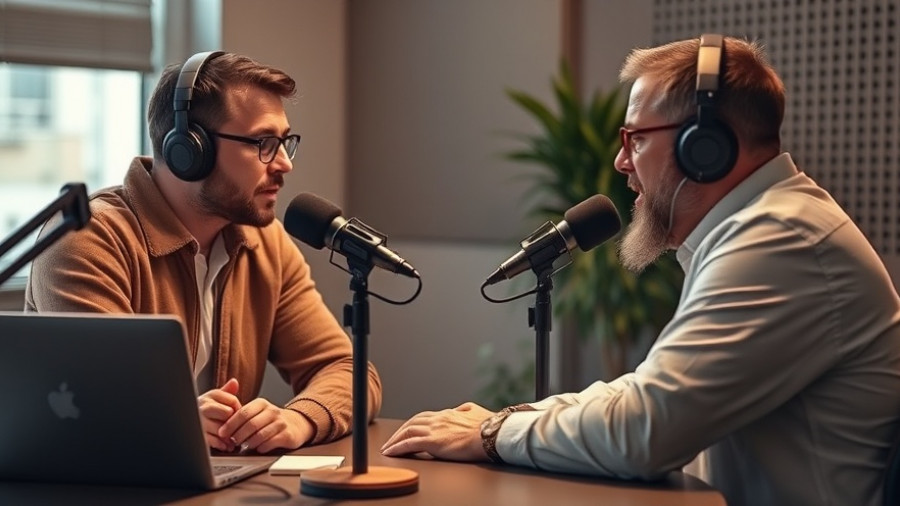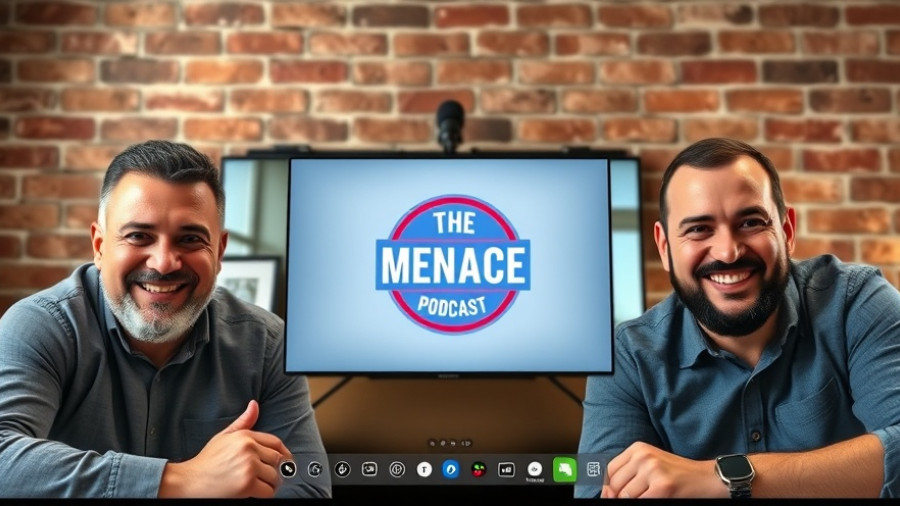
Rediscovering the Magic of Ridley Scott's 'Kingdom of Heaven'
Ridley Scott's 'Kingdom of Heaven' has garnered attention for its portrayal of one of history's most complex conflicts—the Crusades. The 2005 film, set against the backdrop of 13th-century Jerusalem, offers a nuanced perspective that pushes viewers to reconsider historical narratives. The lead role, played by Orlando Bloom, as Balian of Ibelin, showcases a journey not only of personal growth but also of moral complexity in a historical context often oversimplified in popular media.
In 'Starting Strength Radio| Light Day Ep6: Kingdom Of Heaven Clip', the discussion dives into the film's portrayal of history and leadership, exploring key insights that sparked deeper analysis on our end.
Film as a Character: The Role of Setting
The landscapes of Morocco, where much of the filming took place, become more than mere backdrops; they serve as crucial characters within the narrative. The vast desert vistas embody the isolation and harsh realities of medieval warfare, emphasizing the struggles of the characters. Scott's meticulous attention to the environment helps viewers immerse themselves in the period, showcasing how geography influenced military tactics and relationships during the Crusades.
Powerful Performances and Character Depth
Bloom is not alone in carrying the film; he shares the stage with powerhouse performances from actors like Eva Green and Jeremy Irons. Green’s portrayal of Sibylla adds depth to the narrative, presenting a woman shaped by her noble birth, yet yearning for independence. Moreover, Jeremy Irons brings gravitas to his role, framing the political intrigue with his skilled portrayal of Tiberias.
A Unique Interpretation of Leadership
One of the standout moments in 'Kingdom of Heaven' is the interaction between Balian and Saladin, depicted here with mutual respect rather than the animosity often portrayed in mainstream portrayals. This portrayal challenges the stereotypes of both Christian and Muslim leaders as merely war-mongering figures. Instead, we see a thoughtful exchange of ideas that speaks to the potential for dialogue and understanding, even in the midst of conflict.
The Director's Cut: A More Comprehensive Storytelling
The director’s cut of 'Kingdom of Heaven' runs 45 minutes longer than the theatrical version, and it shows. This extended version introduces essential subplots that fill in gaps left in the shorter film, granting viewers a more complete understanding of the characters’ motivations and the intricacies of the political turmoil. This emphasis on a more thorough narrative highlights the pressures and complexities leaders face during times of conflict, an aspect often overlooked in cinematic adaptations.
Contemporary Relevance of Historical Narratives
'Kingdom of Heaven' resonates today as historians and audiences continue to grapple with the repercussions of past conflicts on modern societies. The moral questions posed within the film about leadership responsibility and the costs of war remain poignant, inviting viewers to reflect on current geopolitical situations. The film elicits discussions on how narratives are constructed and highlights the importance of multiple perspectives, especially in politically charged environments.
The Legacy of 'Kingdom of Heaven': More Than Just a Film
Ultimately, 'Kingdom of Heaven' stands as an artistic achievement that transcends mere entertainment. Through its historical context, depth of character, and engaging storytelling, it prompts vital discussions on leadership, morality, and the human capacity for understanding. Viewers of all backgrounds might find something meaningful within its elaborate narrative and dynamic portrayals.
For those interested in exploring an epic that intertwines personal journeys with grand historical themes, Ridley Scott’s 'Kingdom of Heaven' remains an essential watch. Consider diving into the director’s cut for the full experience—it unfolds a rich narrative tapestry that belies the constraints of a standard runtime.
 Add Row
Add Row  Add
Add 




Write A Comment